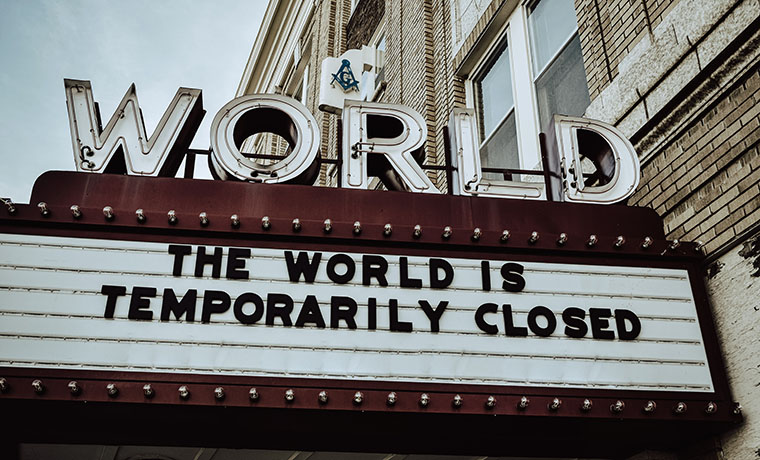Will Retail Survive the Storm?
As seen in Power Retail (27 April 2020) ” The outbreak is one of the most unprecedented events in modern history. So, what does this mean for retail and will it survive after the virus has gone?
Our retail expert weighs in
Power Retail sat down with Andrew Gorecki, Managing Director of Retail Directions, to discuss COVID-19’s effect on the industry.

Every aspect of modern life is affected, from the economy to medical needs and social lives. Australia has experienced a lockdown for more than five weeks, and some restrictions are starting to lift.
Unprecedented times for retail
While the restrictions may begin to fade, some things will remain the same. “This is unprecedented in the modern history, and some of the changes are irreversible in all these realms,” Gorecki explains. “For example, massive government handouts will result in a redistribution of wealth, making middle class and retirees poorer. This will surely alter behavioural patterns and will reduce demand for discretionary products. At the same time, many smaller businesses just won’t have the means to restart – if you use a living organism analogy, once the life is gone, resurrection is unlikely. This is particularly relevant for restaurants, travel agents, and other personal service outlets.”
While some parts of life remain ‘irreversible’, there has been growth in other areas of the industry, in particular, online retail. “As brick and mortar retailers close their stores, their online sales received a significant boost,” Gorecki explains.
Of course, this isn’t without its faults and difficulties, as retailers struggle with internal logistics systems. Moreover, delivery companies such as Australia Post are particularly feeling the pinch. “The current level of demand for transport services is not sustainable,” Gorecki says.
The Let’s Regrow Town Hall information session showcased the changes in psychological behaviour due to the COVID-19 outbreak. Fear of catching the virus is the ‘overwhelming factor’ that is generating a shift to online spending. Furthermore, Power Retail would expect this to be a permanent psychological state of mind even after the global COVID-19 outbreak is contained.
“I think that people will be scared of the repeat of the present crisis,” Gorecki tells Power Retail. “Few would consider a risk of such an economic apocalypse to be real. Now it will be factored in all decisions. People will be reluctant to commit to travel, events or big-ticket purchases that are further in the future than a month or so.”
With cash becoming less common due to the infection rates across Australia, retailers urge customers to use digital payment platforms. As such, there has been an increase in PayPal, while Buy Now, Pay Later platforms have held steady over the last few weeks.
Will retail survive COVID-19?
However, with mass uncertainty across Australia regarding jobs, the success of businesses, and a sense of doubt online shoppers are reluctant to go into any debt via BNPL or credit cards. “I think that the rapid growth of BNPL providers would have come to an end anyway, as we have started to approach the saturation point,” Gorecki says. “Current drop in customer confidence will make people even more reluctant to incur debt.”
So, will retail survive the COVID-19 outbreak? Yes, but with some serious time and healing. “Retail success has always been built around merchandising prowess,” Gorecki says. “If the retailer can repetitively select merchandise that will sell with the right margin, they have a good chance of a win in this new world that is about to emerge.”
This is a new world in many ways. Retailers will have to decide on new strategies, payment options and processes. “To make the win a sure thing, they also need to execute well, and this is were good business processes and elegant systems are fundamental,” says Gorecki. “By elegant, I mean delivering the required outcome with ease, at a low cost. Sounds obvious and easy, but not many retailers got it right.”
It’s time for retailers to look at their omnichannel processes
Ultimately, retail is going to experience severe changes in the next few months as a result of the outbreak. For those who are only just starting to expand into online, it may be a sign that there’s no going back. “Retailers would have learnt the lesson that it’s time to seriously look at their omnichannel processes,” Gorecki says. “They went into the crisis using online systems that have evolved over the last ten plus years, often in isolation from the rest of the enterprise. This will need to be rectified, so online capabilities will be unified with the rest of the business and more scalable.”






